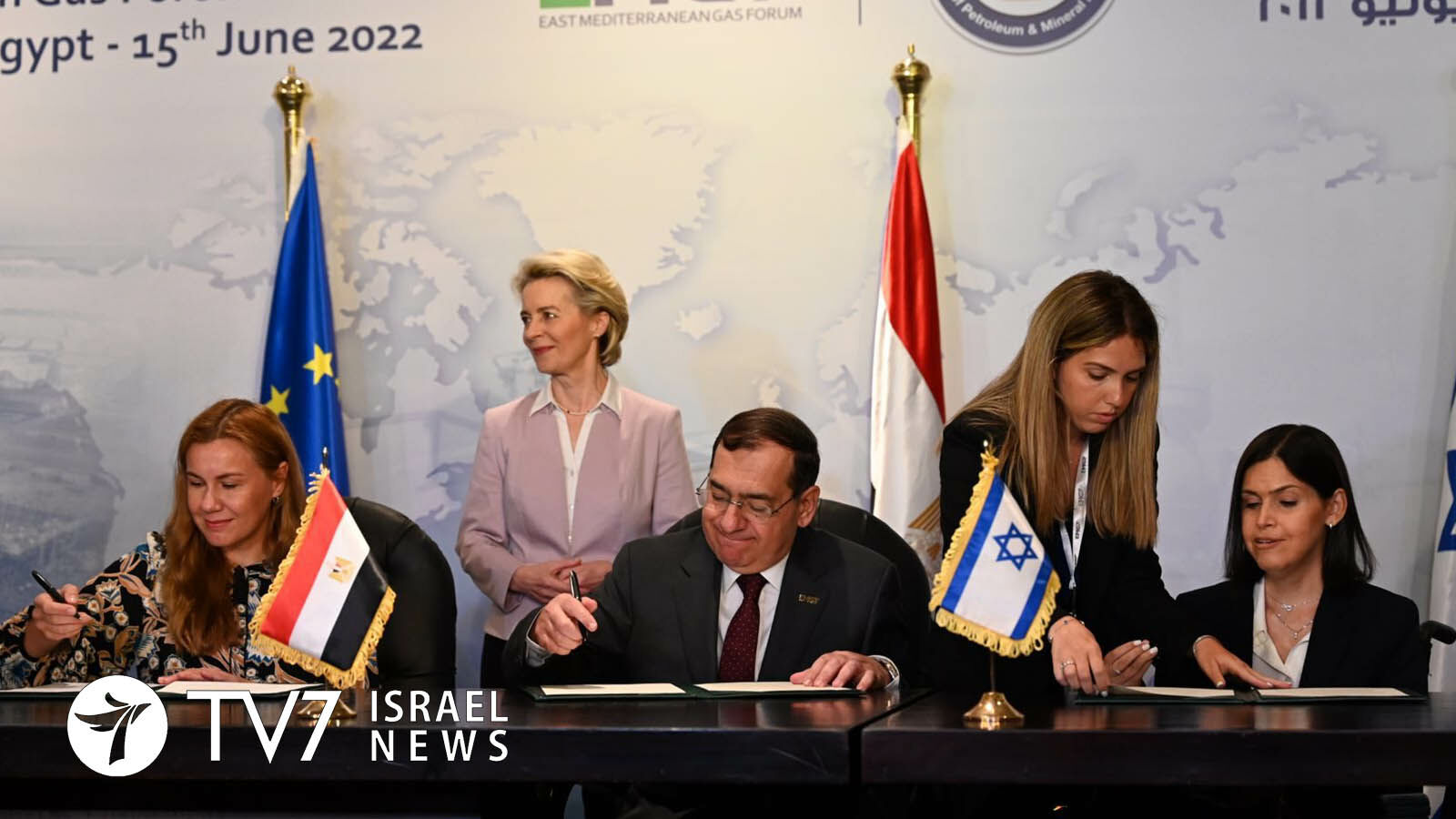The development is aimed at boosting natural gas exports from the East Mediterranean Sea to Europe.
By Erin Viner
Israel and Egypt signed a trilateral Memorandum of Understanding (MOU) with the European Union (EU) to significantly expand transportation of natural gas to the continent, which is seeking alternatives to Russian energy imports in further reaction to the Kremlin’s invasion of Ukraine.
Israeli Energy Ministry Karine Elharrar, Egyptian Minister of Petroleum Tarek el Molla and EU Energy Commissioner Kadri Simons signed the MOU yesterday in the presence of European Commission President Ursula Van Der Leyen.
“Today Egypt and Israel make a commitment to share our natural gas with Europe and to help with the energy crisis,” Israeli Minister Elharrar said after the signing of the MoU in Cairo. She added that the framework deal will be the first to allow “significant” exports of Israeli gas to Europe.
Under the agreement, the EU will encourage European companies to participate in Israeli and Egyptian exploration tenders, said the Israeli Energy Ministry.
Egypt is also a gas producer, but its exports have been limited by rising domestic demand.
Some Israeli gas is already shipped by pipeline to liquefaction plants in Egypt, for re-export as liquefied natural gas (LNG).
While LNG transported from the Arab Republic to Europe will increase due to the MOU, experts believe it will likely take several years before the exports can be significantly expanded. According to the deal, that natural gas is not expected to serve a central role in the EU’s energy market until 2030.
The MOU came just one day after Israeli Prime Minister Naftali Bennett hosted EC President von der Leyen in Jerusalem.
The two leaders held private talks followed by an expanded meeting between the sides, Prime Minister Bennett green-lighted President von der Leyen‘s request for cooperation in exporting natural gas to Europe via Egypt.
They also agreed to strengthen Israeli-European relations, and to enhance cooperation in – inter alia – innovation, dealing with climate change and sustainability.
